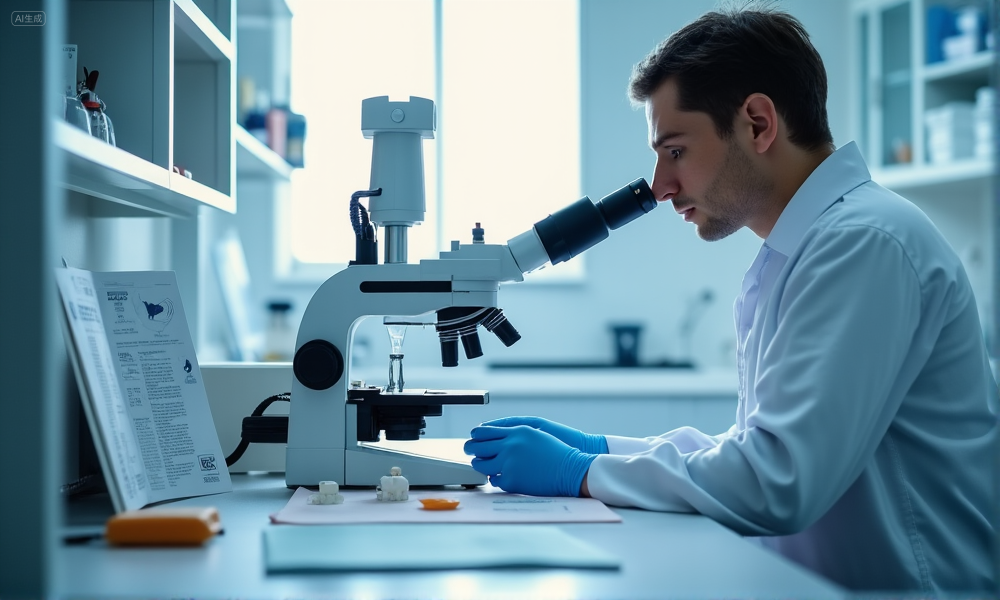In today’s highly regulated dental implant market, a single compliance gap can halt shipments, trigger fines, and cause millions of dollars in losses. For global dental prosthetics buyers, this makes certification alignment and sustained regulatory compliance non-negotiable. Each of these factors directly impacts market entry speed, product reliability, and the stability of long-term supply relationships.
The most effective procurement evaluations focus on measurable, verifiable criteria that minimize compliance risk and ensure operational fit:
- Certification Alignment – Confirm the lab holds and maintains valid international and market-specific certifications such as ISO 13485, CE Marking, FDA QSR, or their regional equivalents, with documented renewal schedules.
- Regulatory Readiness – Verify the lab’s track record in meeting regional market access requirements, including submissions for TGA, PMDA, and SFDA approvals.
- Operational Compliance – Assess adherence to workplace safety regulations (OSHA and local standards) and robust data protection frameworks (HIPAA, GDPR) for secure digital workflows.
- Material Assurance – Require ADA- or ISO-certified dental materials backed by complete biocompatibility documentation and traceability reports from upstream suppliers.
- Sustainability of Standards – Look for regular internal audits, independent third-party inspections, and continuous staff training on evolving regulations.
By building partner selection around these non-negotiable factors, procurement teams can secure lab relationships that meet immediate tender requirements while providing the regulatory resilience and quality consistency essential for long-term, multi-market success.
Understanding Your Market’s Certification Requirements — And How We Align
Global dental implant projects require navigating a complex landscape of certification standards, where even minor oversights can delay market entry or trigger costly rework. For procurement teams, selecting a lab that aligns with target market regulations ensures smoother compliance, predictable timelines, and fewer risks. As an overseas dental lab, we integrate regulatory expertise into our production processes so every restoration meets the certification standards required for your market.

dental-lab-certification-compliance
Meeting ISO 13485 Standards with a Proven Quality Management System
We operate under a documented ISO 13485 quality management system, covering every stage from design control to final inspection. This ensures all restorations meet stringent medical device requirements, providing full traceability and documented process validation.
Delivering Precision with CDT-Certified Technicians
Our CDT-certified technicians bring years of specialized training, applying advanced techniques to achieve precise fits, functional occlusion, and consistent aesthetic results—critical for passing market-specific inspections.
Applying ISO 9001 Principles for Case-to-Case Consistency
Beyond medical device compliance, we embed ISO 9001 principles across our workflows. This drives consistency in production, minimizes variability between batches, and strengthens the reliability of large-scale orders.
By integrating ISO 13485 and ISO 9001 frameworks with CDT-certified craftsmanship, we offer procurement teams confidence that every case will meet the compliance and performance benchmarks required for their target market. Learn more about ISO 13485 for dental devices.
Ensuring Smooth Market Access with Targeted Regulatory Approvals
Gaining entry into different global markets for dental implant restorations requires navigating a patchwork of regulatory frameworks. Delays or missteps in compliance can lead to shipment holds, added costs, and reputational risk. Partnering with an overseas dental lab that understands and actively supports market-specific approvals helps procurement teams streamline certification processes and reduce administrative burdens.

dental-lab-global-market-approvals
Facilitating CE Marking Compliance for European Clients
We assist European-focused projects by preparing technical documentation, material certifications, and manufacturing process records required for CE marking. This includes aligning restoration design and material selection with EU MDR standards, reducing the likelihood of compliance gaps during notified body reviews.
Enabling FDA QSR (21 CFR 820) Compliance for U.S. Projects
For the U.S. market, we adhere to FDA’s Quality System Regulation by maintaining detailed device history records, performing in-process inspections, and documenting all manufacturing steps. Our experience with U.S. import documentation helps avoid customs clearance delays.
Overseeing TGA Custom-Made Device Notifications for Australia
Australian clients benefit from our established workflow for TGA custom-made device submissions. We ensure required statements, clinician orders, and manufacturing details are properly documented to meet Australia’s Therapeutic Goods Administration requirements.
Coordinating PMDA/MHLW Approvals for Japan
Entering Japan requires compliance with PMDA and MHLW standards, which involve stringent material safety testing and case-specific documentation. Our team coordinates closely with importers and Japanese dental professionals to meet these requirements efficiently.
Assisting SFDA Registration for Middle Eastern Markets
We support clients in securing Saudi Food and Drug Authority registration by providing validated technical files, Arabic-language labeling where necessary, and batch-specific quality documentation to facilitate smooth regulatory approval.
By aligning technical documentation, materials compliance, and manufacturing processes with regional requirements, we help procurement teams achieve faster, risk-free market entry across multiple regions. Learn more about global dental device regulations.
While this article focuses on certification and compliance, other factors such as digital workflow integration and material expertise are equally critical. Our detailed guide, What to Consider When Choosing a Dental Implant Lab Partner, explores these aspects in depth.
Integrating Compliance into Everyday Lab Operations
For regulatory approvals to remain valid, compliance can’t be a once-a-year audit exercise—it must be embedded into daily production workflows. As an overseas dental lab, we integrate safety standards, documentation protocols, and local regulatory requirements into every stage of restoration manufacturing. This approach not only ensures ongoing legal conformity but also minimizes workplace risks and operational disruptions.

dental-lab-daily-compliance-operations
Embedding OSHA Standards into Workflow Safety Practices
We follow OSHA safety protocols in lab layouts, equipment handling, and personal protective equipment use. Regular safety briefings, hazard communication training, and ergonomic workstation design help prevent accidents and improve technician efficiency, ensuring uninterrupted production.
Adhering to Local Workplace Safety Rules Across All Locations
In addition to international safety standards, we meet country-specific workplace regulations in each region where our manufacturing or support teams operate. This includes fire safety drills, chemical handling procedures, and compliance checks to meet local labor and health authority requirements.
By making compliance a core part of daily operations rather than an occasional checkpoint, we ensure consistent output quality, safe working environments, and stronger confidence from regulatory bodies and procurement partners.
Safeguarding Patient Data and Digital Workflows
As dental implant workflows become increasingly digital, the protection of patient data is not just a regulatory requirement—it is a core trust factor between clinics, procurement teams, and their lab partners. A single data breach or mishandled case file can result in legal penalties, market access restrictions, and reputational damage. As an overseas dental lab, we integrate strict data protection measures into every stage of digital case handling, ensuring compliance with both U.S. HIPAA and EU GDPR frameworks.

dental-lab-data-security
Maintaining HIPAA Compliance for Digital Impressions and Case Files
We safeguard digital impressions, treatment plans, and patient-identifiable information through encrypted transmission channels and secure storage systems. Access is limited to authorized personnel, and audit logs are maintained for every file interaction, ensuring full HIPAA compliance for all U.S.-related projects.
Following GDPR Requirements for EU-Linked Data Processing
For cases originating from the EU or involving EU citizens, we apply GDPR protocols such as explicit consent documentation, data minimization, and cross-border transfer safeguards. This ensures that patient data is processed lawfully, transparently, and with proper retention limits.
By aligning our digital workflow with HIPAA and GDPR standards, we provide procurement teams and clinics with confidence that sensitive data is handled securely, meeting the highest global privacy expectations. Learn more about HIPAA security rules.
Verifying and Documenting Biocompatible Materials
Material safety is a non-negotiable requirement for dental implant restorations, directly affecting patient health, long-term restoration performance, and market entry eligibility. Regulatory bodies in all major markets demand verifiable proof of biocompatibility, and procurement teams need assurance that every component meets internationally recognized safety benchmarks. As an overseas dental lab, we source exclusively from certified suppliers and maintain full traceability for every lot used in production.

dental-lab-material-biocompatibility-testing
Using ADA- and ISO-Certified Dental Materials
We select materials that hold ADA approval and meet ISO 10993 and ISO 6872 standards, covering biological safety and mechanical performance. This ensures restorations are safe for patient use, durable under functional load, and compliant with key regulatory frameworks in global markets.
Providing Full Biocompatibility Documentation with Traceability
Each batch of material is logged with supplier certificates, internal verification records, and manufacturing lot numbers. This documentation package allows procurement teams to respond quickly to regulatory audits, product recalls, or client inquiries with precise traceability.
By combining certified material sourcing with meticulous documentation, we help clients safeguard patient safety, accelerate regulatory reviews, and reduce the risk of non-compliance. Learn more about ISO 10993 biological evaluation of medical devices.
Sustaining Compliance for Long-Term Partnerships
Maintaining regulatory compliance is not a one-time achievement—it’s an ongoing commitment that determines the stability of supply chains and the trustworthiness of lab partnerships. Procurement teams benefit most from working with an overseas dental lab that actively manages certification renewals, updates processes to meet evolving regulations, and remains transparent through routine audits.

Image
alt: dental-lab-compliance-audit-preparation
prompt: a highly realistic, ultra-detailed, professional-quality image in a modern dental lab conference room, with natural daylight. shows a compliance manager and team preparing for an audit, reviewing ISO and CE documents spread out on a large table, while a third-party auditor checks files on a laptop.
Preventing Certification Lapses with Proactive Renewal Management
We maintain a rolling compliance calendar to ensure all certifications, from ISO to regional regulatory approvals, are renewed well before expiration. This prevents disruptions in market access and avoids last-minute documentation issues.
Regularly Training Teams on Regulatory Updates
Our technicians, quality managers, and administrative staff participate in regular training sessions on updated ISO guidelines, FDA amendments, and market-specific rule changes. This ensures every department is aligned with current compliance expectations.
Welcoming Internal and Independent Audits for Full Transparency
We conduct both scheduled internal reviews and unannounced third-party audits to evaluate and improve our processes. Sharing these audit outcomes with our clients demonstrates our transparency and commitment to maintaining industry-leading standards.
By treating compliance as a continuous process, we give procurement teams confidence that our operations will remain aligned with evolving regulations—securing long-term stability and trust in the supply chain. Learn more about ISO quality management principles.
Conclusion
In today’s highly regulated dental implant market, success depends on more than just technical skill—it requires a partner who can deliver certified quality, protect sensitive data, and maintain compliance across multiple jurisdictions. By integrating ISO-based quality systems, market-specific regulatory expertise, and rigorous daily safety practices, we ensure every restoration meets both clinical and legal requirements. As an overseas dental lab, our role is to help procurement teams achieve faster market entry, reduce risk, and sustain long-term operational stability—making us a trusted extension of your supply chain.


